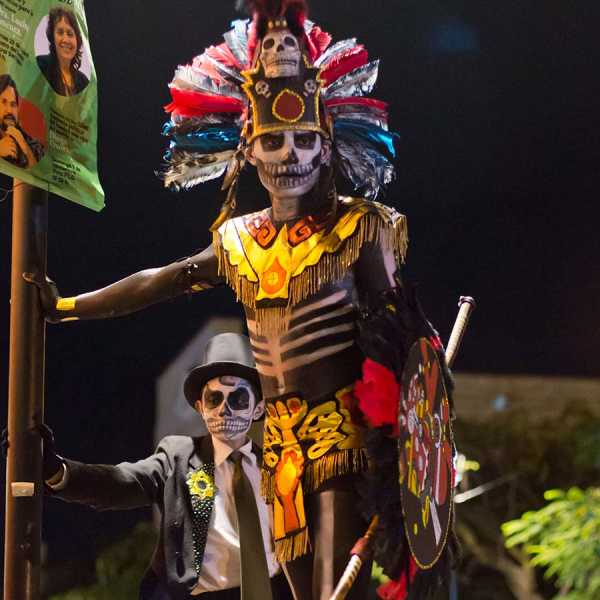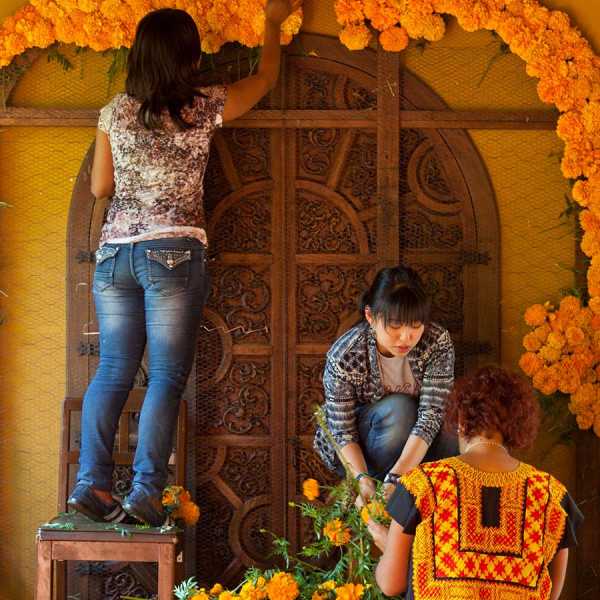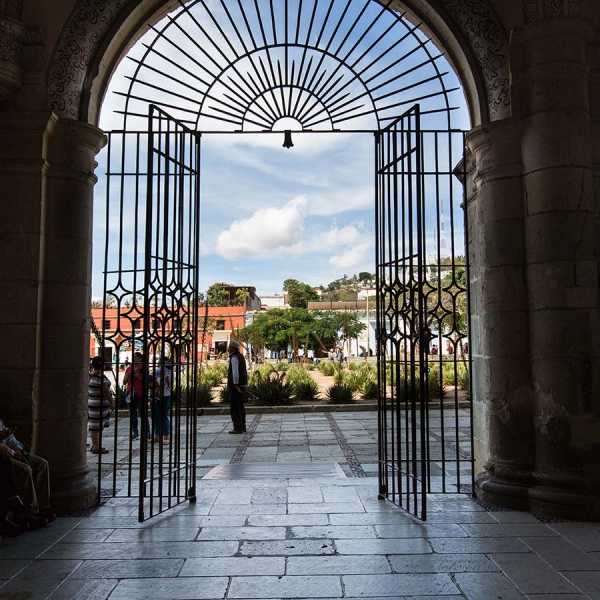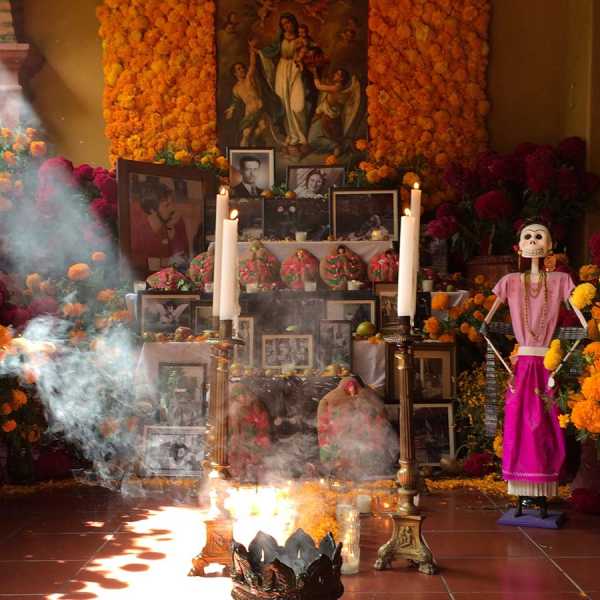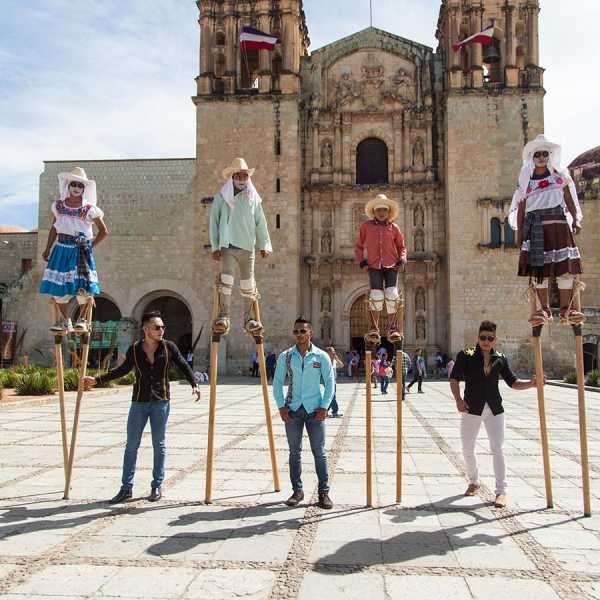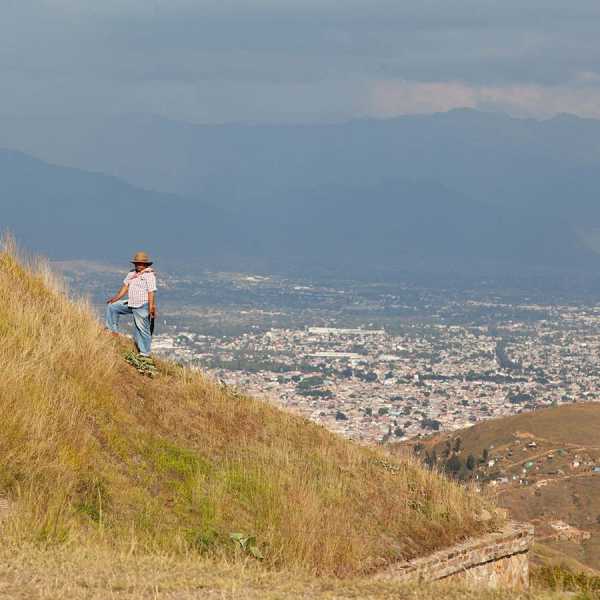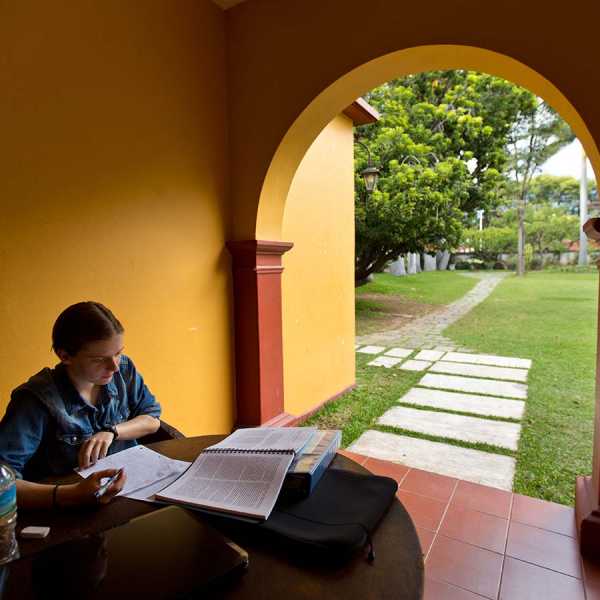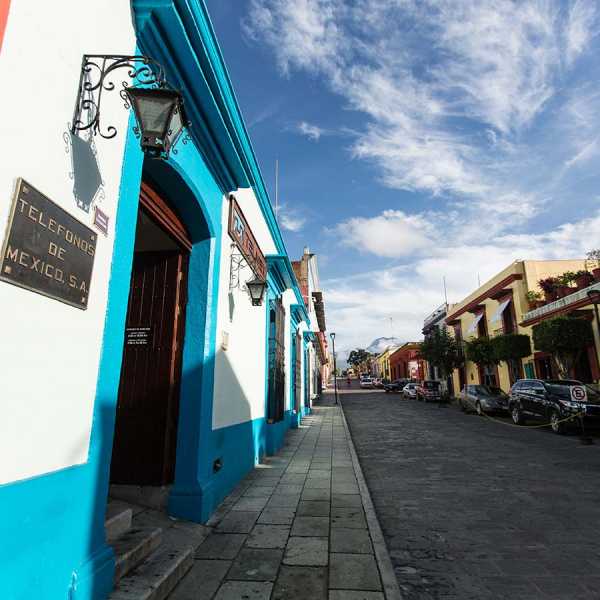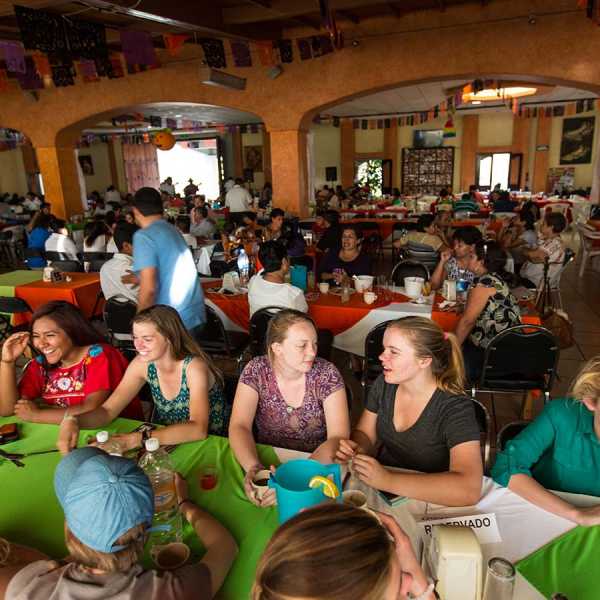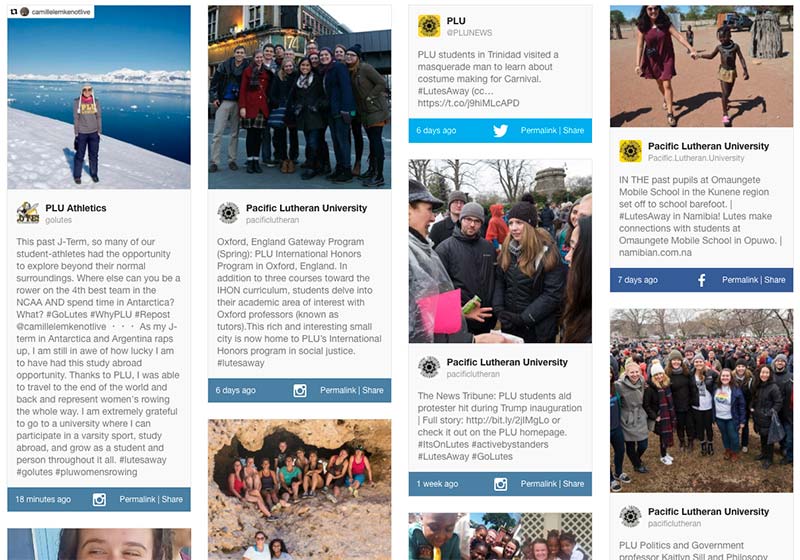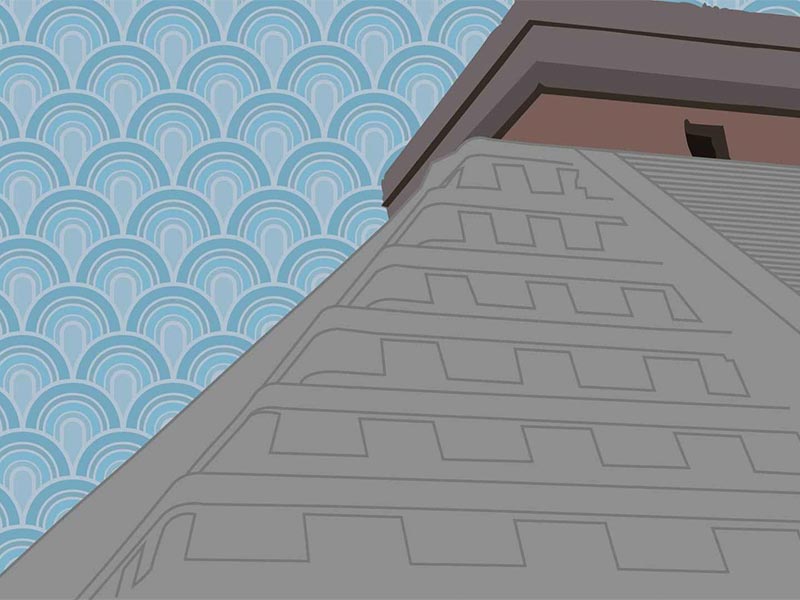Undocumented student struggles to reconcile identity in Oaxaca
Editor’s note: The name of the undocumented student featured in this story was changed to protect her identity. Given the uncertain future of the immigration policy Deferred Action for Childhood Arrivals (DACA), ResoLute granted anonymity to “Sophia” in order for her to speak freely about her experience with the Oaxaca, Mexico, study away program.
Sophia silently stood in the Oaxaca International Airport, paperwork in hand, flooded with a haze of emotion.
Equal parts excited and overwhelmed, she prepared to begin a long-awaited study away experience that almost didn’t happen.
But after stepping off the plane, thousands of miles from Pacific Lutheran University and her family’s home, Sophia paused. Two lines divided incoming travelers: one for visitors, another for those returning home.
“What line do I go through?” the PLU senior recalled asking herself.
Sophia emigrated to the United States from Mexico about 17 years ago. Her family relocated to Tacoma in pursuit of better opportunities, she says.
Sophia, who holds a work permit, is a beneficiary of Deferred Action for Childhood Arrivals (DACA), an immigration policy started by the Obama administration in 2012 that allows undocumented minors and students to remain in the U.S. as well as study at American colleges.
A laborious process landed Sophia in that airport, pondering her identity alongside fellow Lutes.
“I wasn’t sure if I was to go to the visitor’s side because I had advance parole paperwork, or if I was to go through the domestic line since I carried a Mexican passport,” she said. “It took me a solid five minutes before I went directly to an officer to ask.”
That was the first development in Sophia’s semester-long identity struggle, one that continues more than a year after she returned to the U.S.
“Even in the airport,” she said, “there was a clash of identity.”
Worth the fuss
Sophia first caught the travel bug her sophomore year of college, after learning more about PLU’s extensive study away programs and watching other students apply for them.
However, looming uncertainty about the risks of traveling given her undocumented status forced her to reconsider.
“I wasn’t 100 percent guaranteed re-entry to the country,” she said.
OAXACA, MEXICO
This program explores the intersection of development, culture and social change through the lens of the dynamic context of contemporary Mexico.
But after hearing success stories, as the mystery shrouding DACA started to clear, she had a change of heart. “That inspired me, in a way, to push for it,” she said.
The process was complex — lots of paperwork and lots of waiting. Sophia endured both.
She applied for advance parole, which is required of all DACA recipients pursuing travel outside the U.S. She paid several hundred dollars to submit the paperwork, which outlined detailed information about the Oaxaca program. She met regularly with an attorney to guarantee the greatest odds of approval.
Months before students were scheduled to leave, her advance parole was granted.
Then, a thief nearly robbed Sophia of the fruits of her persistence.
En route to one of three jobs, just before taking her important documents to her sister’s house for safe keeping, Sophia’s wallet was stolen out of her car while she pumped gas. The documentation she needed to travel — including her Social Security card, work authorization card and passport — was gone.
Though Sophia worked diligently to replace the documents, she doubted that Oaxaca was still in the picture and eventually withdrew from the program.
“At that point going to Mexico was the last thing on my mind,” she said.
Then, weeks before the Oaxaca program began, the replacement documents arrived. A host of PLU departments worked to re-enroll Sophia in the program, cancel her on-campus housing and secure the necessary financial aid. Even then, she said, “it was so close to the program start date, I didn’t know if I’d get to go.”
The Friday before her classmates were set to fly, Sophia booked airfare and her study away experience was a go. Finally.
She never questioned whether all the fuss was worth it. After all, she said, it was the opportunity of a lifetime. “I wanted to be able to say ‘at least I tried’ and took advantage of a potential opportunity.”
The only way back
Sophia is the first and only PLU student to study outside the U.S. under those circumstances, said Tamara Williams, executive director of the Wang Center for Global Education and Oaxaca program director.
“It took courage,” Williams said.
The essence of the program catered to Sophia’s internal struggle. It centers on social justice and the roots of migration, Williams said, with an academic focus on the humanities and social sciences, among other disciplines.
Williams said the program helps break away from the oversaturation of negative stories coming out of Mexico. “Oaxaca allows students to learn about places of hope,” she said.
Despite overcoming so many obstacles to study in Oaxaca, Sophia’s relatives on both sides of the border were unsure that she would successfully return from her semester abroad in fall 2015. Sophia wasn’t even sure. But she had to take a chance.
“For me it was more than just studying abroad,” Sophia said. “This was the only legal way I could go back.”
Sophia’s family moved to the U.S. when she was just 4 years old. Despite her nearly lifelong Tacoma upbringing, she never considered herself American. Her family spoke Spanish at home and ate traditional Mexican food. She recognized at an early age that she was living a different life than her peers because of her citizenship status.
“I have never questioned my Mexican identity,” she said.
That all changed after she studied away. She’s been re-evaluating how she self identifies since that awakening moment in the airport. “That’s a work in progress,” she said. “I can definitely say I identify as both (American and Mexican).”
The constant reflection and evaluation was, and continues to be, a meaningful experience, Sophia stressed. She said the study away program prompted her to ask bigger questions about her identity — growth that went beyond the scope of the coursework.
Still, the program itself is powerful. It includes an intensive Spanish course, a salsa dancing class, an immersive homestay with a local family, participation in Dia de los Muertos (Day of the Dead) festivities, nonprofit internship opportunities and more.
Sophia volunteered with Fundación En Vía, an organization that supports social and community development through microfinance, responsible tourism and education. Empowering women is key to the nonprofit.
“This opportunity allowed me to meet local women and learn about their businesses, their goals and hopes for the future,” she said.
Outside the classroom, Sophia said she struggled to reconcile the stark contrast between her experience traveling with a private institution and the experiences of low-income residents of Oaxaca.
Once, upon her father’s request, she asked an employee at a cafe how much the minimum wage was. He said it was roughly 70 pesos.
“Per hour?” she asked him, baffled.
“No,” he responded. “Per day.”
Sophia was shocked. The amount was about 20 cents more than she paid for her cup of coffee.
“The Mexico I lived was a very privileged Mexico,” she acknowledged. “Even though my situation is very complex, there is privilege within my circumstance.”
Despite the challenging realities she faced, Sophia recognizes the value of seeing those disparities first hand.
“It’s one thing to hear about it and see it through the media,” she said. “It’s another thing to live through it. I wanted to see where I came from.”
Seize the opportunity
After she returned to PLU, Sophia originally planned to advocate for fellow DACA students looking to study away, just as she relentlessly advocated for herself. Now, Sophia says with a heavy heart, that plan has changed.
As a new president takes office and the political climate continues to drastically shift, she says it’s no longer safe for undocumented students to take the same leap of faith she did more than a year ago.
Sophia is glad she seized the opportunity during the short window when travel outside the U.S. was possible.
“Despite all the barriers I had to go through,” she said, “I loved my experience and wish I could have gone on another study away trip.”
As for students who don’t face the same obstacles, Sophia urges them to take advantage of the opportunity — a privilege she says shouldn’t be wasted.
“You learn so much about yourself,” she said. “Use your privilege to educate yourself. Putting yourself in a vulnerable position will permit students to grow personally, educationally and holistically.”


